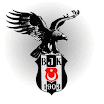The Steelers' roots in Pittsburgh date back to July 8, 1933 when they were founded under the name Pittsburgh Pirates by Arthur Joseph Rooney. They were a member of the Eastern Division of the 10-team NFL, five of which remain: Pittsburgh Steelers, Chicago (Arizona) Cardinals, Green Bay Packers, Chicago Bears and New York Giants.
The Steelers were not always the thriving team that they are today, however. In their first seven seasons, the Pittsburgh Steelers won only 22 games. Professional football just wasn't a priority in Pittsburgh, where baseball and college football were much more popular, so Art Rooney often took the Steelers away from their home at Forbes Field, and on the road to cities such as Johnstown, PA; Youngstown, OH; and New Orleans, LA. Through it all, Rooney never faltered in his resolve to make pro football successful in Pittsburgh.
In 1938, Rooney offered Colorado All-American Byron "Whizzer" White a $15,800 contract, making him the NFL's first 'big money' player. Two years later, in an attempt to generate some fan support and involvement, the football team changed its name to the Pittsburgh Steelers, in recognition of Pittsburgh's proud steel heritage. Yet it still took two more years before the Steelers, thanks to rookie Bill Dudley who led the NFL in rushing, enjoyed their first winning season.
The following years saw the Pittsburgh Steelers merged with the Philadelphia Eagles "Steagles" (1943) and Cardinals "Card-Pitt" (1944) as football rosters became depleted by World War II. The Steelers first chance at a division title came in 1947 under coach Jock Sutherland as the Pittsburgh Steelers finished in a tie for first place in the NFL's Eastern Division with the Philadelphia Eagles, who beat the Steelers in a playoff game 21-0. From 1957 to 1963, the Steelers, led by quarterback Bobby Layne, defensive tackle Ernie Stautner and running back John Henry Johnson, were again division contenders but continued to come up short. The 'dynasty years' of the Pittsburgh Steelers were still a decade away.
Two significant changes took place in 1970, when the Pittsburgh Steelers, under the leadership of coach Chuck Noll, moved from the NFL to the AFC Central with the merger of the American Football League and the National Football League, and also moved into their new home at Three Rivers Stadium, named after the three rivers (Allegheny, Monongahela and Ohio Rivers) that converge at downtown Pittsburgh. Previously, the Steelers had played home games at both Forbes Field and Pitt Stadium (home of the University of Pittsburgh Panthers) from 1958-63 and, exclusively at Pitt Stadium from 1964-69.
Many think Three Rivers Stadium brought good luck, as the Pittsburgh Steelers' first-ever division title came in 1972 with an 11-3 record. In the first playoff game at Three Rivers, the Steelers defeated the Oakland Raiders 13-7 and advanced to the AFC Championship Game (which they later lost) with Franco Harris' "Immaculate Reception," perhaps the most famous play in NFL history, during the final minute of the game.
The Pittsburgh Steelers, led by Hall of Famers Terry Bradshaw, Franco Harris, Mel Blount, Joe Greene, Jack Lambert and Jack Ham, again reached the playoffs in 1973, winning the Super Bowl the next two seasons. After missing another chance at the Super Bowl with playoff losses in 1976 and 1977, the Steelers won the Super Bowl again in 1978 and 1979, becoming the first team in NFL history to win four Super Bowls and the only team to win back-to-back Super Bowls twice. With six consecutive AFC Central championships, eight straight years of playoff appearances, and four Super Bowl championships, the Steelers were affectionately dubbed as the "Team of the Decade" for the 1970s.
The newest chapter of Steelers history began in June of 1998 with the official ground-breaking for Heinz Field, the new 64,450-seat home of the Pittsburgh Steelers and Pittsburgh Panthers. The gates to Heinz Field were officially opened in August of 2001 for seasons of thrills and excitement that will provide a lifetime of memories for generations of football fans. Beyond the South Plaza, Heinz Field's horseshoe shape allows for a beautiful view of the city's unique skyline and the fountain at the Point. Dan Rooney, son of Steelers founder Art Rooney, looks at Heinz Field as the Steelers' "thank you" to the loyal fans who made them one of the best football franchises in history - a beautiful, intimate home where "every seat is a good football seat."
Source: http://pittsburgh.about.com














0 yorum:
Post a Comment